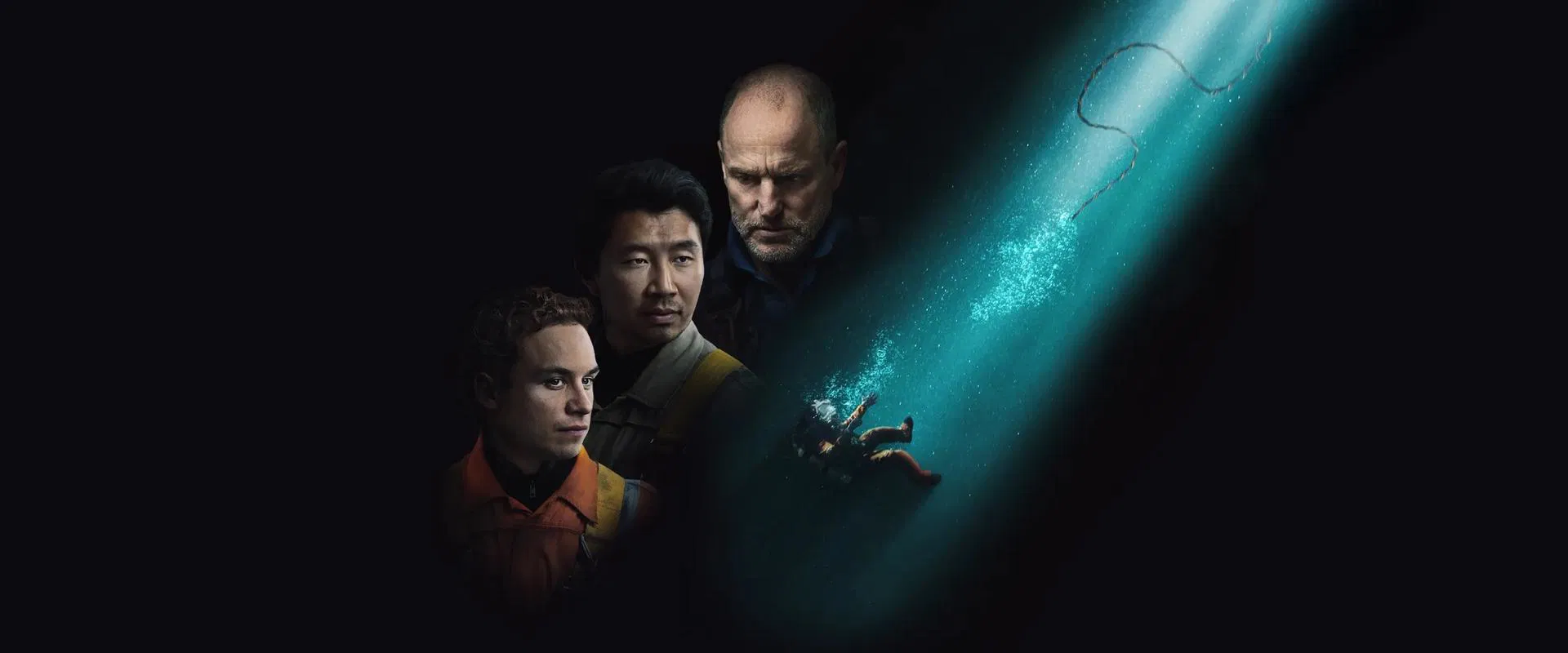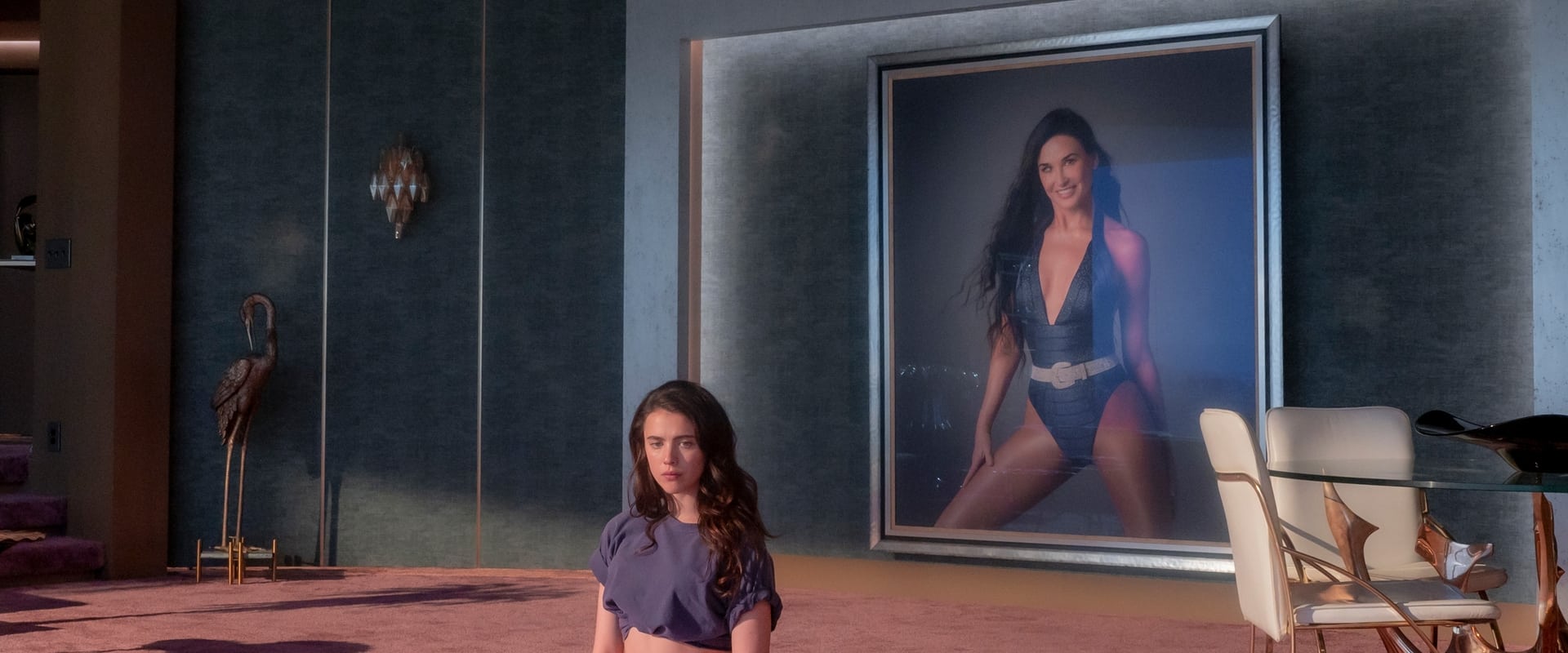If Alex Parkinson’s Last Breath reminds us of anything, it’s that even the most harrowing true stories can be neatly packaged, pressed into narrative conformity, and, somewhere along the way, lose their vital spark. Parkinson, remaking his own 2019 documentary, attempts to fuse the cold sweat realism of survival thrillers like 127 Hours with the hallucinatory dread of The Abyss, but winds up stranding us not in the abyssal dark, but somewhere in the anodyne blue light of a well-meaning, mildly gripping genre exercise.
The premise is the sort of thing Hollywood loves to dredge up from the ocean floor: Chris Lemons (played with a stoic energy by Finn Cole) finds himself alone, cast off in the lightless expanse beneath the North Sea, while his peers—Woody Harrelson’s grizzled Allcock and Simu Liu’s steady-handed Yuasa—scramble to defy the limits of physics, technology, and human frailty to pull him back from oblivion. The brotherhood among these men is palpable; Parkinson cribs from the old playbook of masculine camaraderie under pressure, and the cast—Harrelson, especially—dutifully delivers. Harrelson, that second coming of everyman stoicism, anchors the proceedings with quiet authority, exuding the gravitas of men who have spent too much time negotiating with death’s logistics.
Yet for all its surface tension, Last Breath can’t quite sustain a prolonged gasp of suspense. The film lays out its central disaster swiftly; the air grows thin; time ticks away. But in Parkinson’s hands, urgency is often blunted by an odd sense of narrative autopilot. Instead of wrenching us into the panic and improvisation of a life-or-death rescue, developments flicker by as if preordained on a screenwriter’s checklist. Riveting dilemmas—what it means to stake another’s life on a gamble in the black—are sketched out with broad strokes, dispatched before the audience can fully immerse themselves in the existential terror or ethical muddle.
And what of the central themes? Survival, sacrifice, the unknowability of fate: all are politely nodded to, then hurried past. The film gestures toward profundity, hinting at the big questions—what would you do, inches from suffocation?—but Parkinson’s script seems leery of lingering too long with the abyss. The result is a faint echo of greater works, thrilling but never truly convulsing the gut or the soul.
Visually, Last Breath is a near triumph. The underwater cinematography traps us within the claustrophobic bell, compressing the frame and our chests alike, while the ocean beyond offers both release and threat in equal measure. The design team deserves credit for making the machinery and shadowy hulls into a steel-and-water purgatory. But for all this technical prowess, the emotional register remains oddly flat; moments intended to devastate barely ripple across the surface. It’s a recurring paradox in recent “based on a true story” adaptations—stunning images that never quite hit bone.
And then there are the lapses that yank us right out of the water. Critical to the survival genre—indeed, to the truth-telling Parkinson aspires to—is a sense of procedural authenticity. The omission of something as basic as CPR, when so much is made of protocol and expertise, is an odd breach of contract between film and audience. It’s as if, in dramatizing reality, the process has been sanded down to a schematic. The audience—who wants to believe, to suffer, to drive their own pulse upward—are left instead to raise eyebrows at the sheer absurdity of what’s been omitted.
Last Breath, then, is a paradoxical film: it yearns to honor real peril, to submerge us in the psychology of survival, only to surface,, sputtering, in the safer, more predictable waters of formulaic suspense. The camaraderie among the divers has moments of simple grace, the visuals are often alive with dread, but too often the film leans on cliché or ducks away from true narrative risk. It wants the grandeur of human resilience, but refuses to descend far enough, or stay long enough, in the terror and weird wonder of human desperation.
Parkinson’s film is good enough to keep us strapped to our seats, but not enough to haunt us beyond the theater’s doors. It’s a survival thriller where the terror of dying recedes, and we’re left observing the ticking of the clock, not feeling the suffocation ourselves. Last Breath dangles the promise of the ultimate underwater ordeal, but then gestures us toward the surface just as things threaten to become elemental. For some, that may be enough. For those hoping to feel truly changed—or shaken—by what lies beneath, the film doesn’t quite plumb the necessary depths. As with its luckless diver, we come up for air, still wanting.


